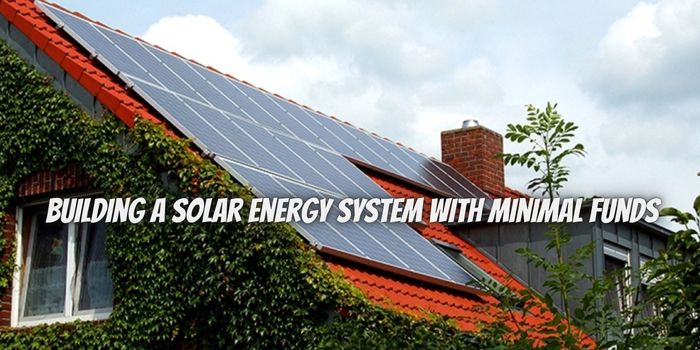Building a solar energy system with minimal funds: a guide for businesses
Solar panels are becoming more and more popular in Hong Kong due to an increased societal awareness of energy crises. As more and more businesses in the private sector pledge to create a greener future by turning to renewable sources of energy, many have plans to build solar energy systems to generate electricity. This is a natural response. After all, the subtropical city receives plenty of sunshine throughout the year, and the lack of space in the region means that it is difficult to procure other sources of energy systems, such as the installation of wind turbines among skyscrapers.
If you are planning on building the most efficient solar energy system with minimal funds, you may be wondering how you can do it, and this article is here to guide you through the process. We will discuss what the main components of a solar energy system are and the kind of equipment you will need. Then, we will investigate the elements that affect the price of solar panels. Finally, we will explore how one can minimise the cost of building the system.
Main components of a solar energy system
The main components of a solar energy system consist of solar panels, which are used to capture sunlight and generate electricity. It also consists of an inverter to convert the DC electricity generated by the panels into AC electricity, that can then be used in homes and businesses.
Some solar energy systems also have a main battery to store excess energy that is generated but not used. This is a good idea if your level of consumption will be much lower than your level of generation. This excess energy can also be put to good use on a cloudy day when there is not enough sunlight. These batteries will often require a charge controller, which can be used to regulate the amount of energy sent to the battery. This is essential, as the controller prevents the battery from being overcharged, which can in turn extend its lifespan.
Mounting hardware and installation equipment such as cables and wiring are also required to build a solar energy system. Mounting hardware keeps the panels secure on the roof or on the sides of buildings, while cables and wiring help connect all the system’s components.
Finally, a monitoring system is required so that users can track the amount of generated energy and its consumption. This is a vital way to track energy use, and it can be used to continually optimise the system.
What determines solar panel pricing?
There are a variety of factors that determine solar panel pricing, from the cost of its materials to the cost of manufacturing. Other considerations, such as quantity, demand, quality, and shipping and storage costs can also make a difference.
Costs of materials and manufacturing
The most significant factor that impacts the price of solar panels is the cost of materials and manufacturing. Solar panels can be made from different types of silicon, and they can also use various types of metals for framing and wiring. When they are manufactured, labour and overhead expenses can affect the final cost of the panel.
Efficiency and quality
The higher the efficiency and better the quality of a panel, the more expensive they tend to be. A good efficiency rating for a solar panel is any percentage above 20, with efficiency percentages in the 14-19 range being moderate.
Supply and demand
Of course, supply and demand dynamics affect the cost of panels. As there are more and more government incentives for businesses in the private sector to use renewable energy systems, there have been a greater demand for solar panels. Panel manufacturers have been able to keep up with this demand, but there is no telling when supply will outpace demand or vice versa. Keeping an eye on the development of the industry is always a good idea.
Costs of shipping and storage
There are few solar panels that are manufactured directly in Hong Kong. Instead, the city’s most popular panels are made by manufacturers either in mainland China or abroad, from the US or Europe. In this case, you will have to factor in the cost of shipping and storage of the panels.
How to minimise the cost of building a solar energy system
To build an effective solar energy system, there is no doubt that an upfront cost is required, as users will need to expend on equipment costs at the outset as well as labour costs for installation. However, there are small ways users can minimise their overall costs.
Purchase equipment wholesale
One of the best ways to get a good deal on solar energy system equipment is by getting them wholesale, from manufacturers and partners of manufacturers. Companies like RS Components can get users good deals and fair pricing on solar panels and related equipment due to their network of manufacturers.
Place panels in optimal positions
To make the most of your system long-term, you can also place panels in optimal positions in the right locations. Make sure there are no obstructions near your panels so that they can be exposed directly to sunlight. A good tip is to ensure your panels face south. This can improve the amount of electricity generated over time, which can decrease your overall costs.
Apply for local governmental incentives
Finally, look for any local incentives from schemes pushed by the government. In Hong Kong, there is the possibility of receiving a subsidy when setting up a renewable energy system, as the local government intends to decrease human reliance on non-renewable sources of energy. Applying for these subsidies can greatly decrease your installation and equipment purchase prices.
The bottom line
Solar energy systems are becoming more and more popular as the world moves towards a more eco-conscious and greener future. If you want to build your own system as a private business owner, there is no better time than now to get started. By following the above tips, you can increase your chances of building an effective solar energy system with high-quality material yet without breaking the bank.














Post Comment
You must be logged in to post a comment.